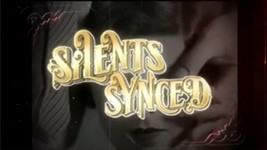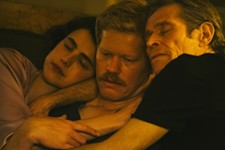Jeff Nichols on the Tragic Romance of The Bikeriders
The Austin filmmaker on finding the right POV for his new film
By Richard Whittaker, 11:35AM, Thu. Jun. 20, 2024
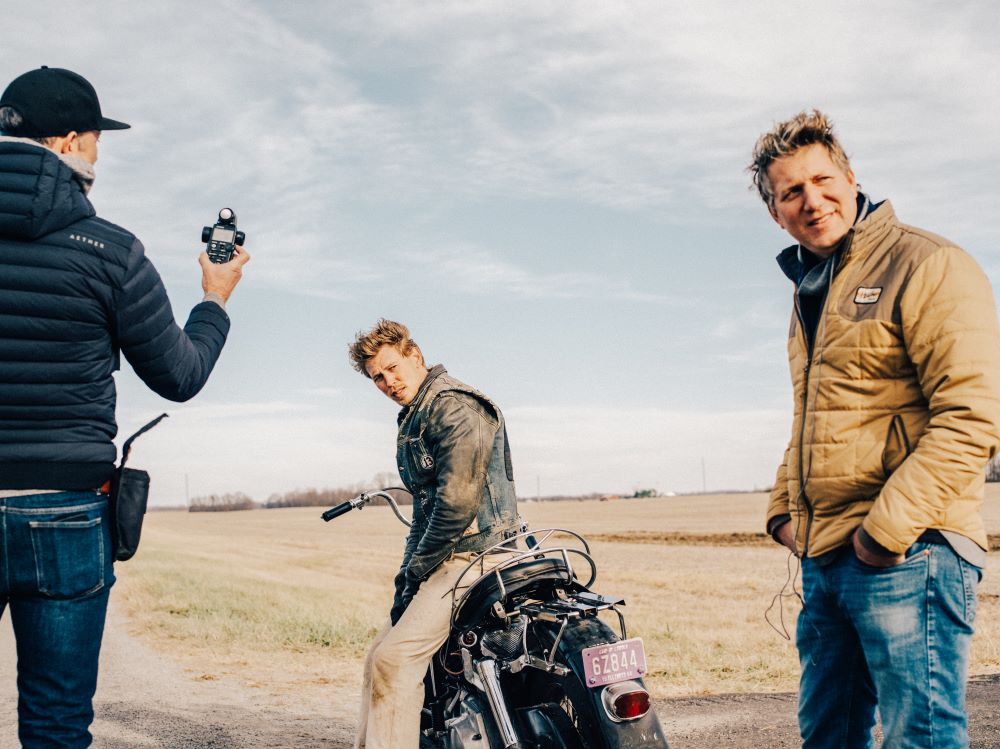
There are few more iconic and emblematically American images than the biker gang. The leathers, the patches, the choppers, the camaraderie. But there's also the violence, the depravity, the criminal conspiracies.
In his new film The Bikeriders, Jeff Nichols travels to the Midwest of the mid-Sixties to explore how the blue-collar bikers who responded to the outsider cool of Rebel Without a Cause transformed into the post-Altamont monsters of pop culture.
Like his 2016 film Loving, the Austin-based Mud director's latest film is a period romance, with working-class people challenging the legal system and social mores. But whereas Loving was about taking on a civil rights abomination – Virginia's ban on interracial marriage – The Bikeriders revs up the story of a fictional biker club, the Vandals MC. It's a love triangle of sorts, with club leader Johnny (Tom Hardy) fixated on troublemaking cool kid Benny (Austin Butler), much to the chagrin of Benny's wife, Kathy (Jodie Comer), who constantly wonders how she got mixed up with these self-proclaimed losers.
However, like Loving, it's based on a real story, and most particularly a real book: The Bikeriders by photojournalist Danny Lyon (played here by Mike Faist), who spent three years photographing, interviewing, and even riding with the Chicago Outlaws MC (on whom the Vandals are based).
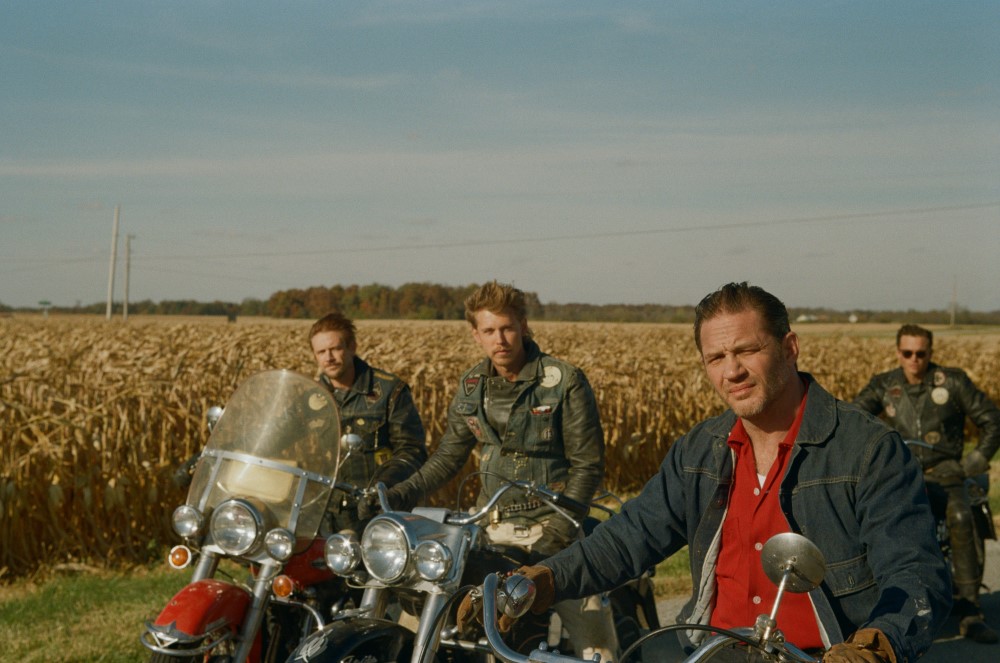
Austin Chronicle: So when did you first come across Danny’s work?
Jeff Nichols: 2003. There was a reissue of his book, and my brother bought it. That was who introduced me to it, my brother Ben. And it was funny because I reached out to Danny and said, "I really love this edition," and he was like, "Argh, I hate that. I hate that cover," and I was like, "Shit, man, this cover’s why I bought the book."
But there were two important things in it, and had I not come in on that particular edition I don’t know if we’d be sitting here. It had color photographs, which weren’t in the original, and it had a second forward that Danny had written in the late Nineties where he kind of caught up with the club a little bit. It’s where he talks about the end of Johnny and really the end of the old Outlaws, as he says they were being referred to at that point. That really struck me, because that gave me the shape of this thing. I’m like, "It feels like a prequel. There is what we know now as biker clubs, and then there’s this other thing."
Danny was this 20-year-old Jewish kid from New York. He’s definitely a rebel, even in his 80s, but I don’t know if it was the mid-Seventies if he would have entered the club in the same way – or even have been allowed to. So it felt like this really interesting period that was a little naïve and then certainly dangerous by the end, and that felt like the shape of a story, even before I knew what it was.
Honestly, it was a bit of a party trick, my being able to pitch this for about 10 years. Executives would come through town and take me out to lunch or dinner, and they’d be like, "Whaddaya got?" And I’d say, "I dunno, I want to make a Sixties biker film" just because it sounded cool to say. But I really didn’t have it figured out. It wasn’t until I sat down in the late teens and my back was against the wall because I’d had another big project fall through.
AC: A project fall through? In Hollywood? Never!
JN: It was my first one, and I didn’t like it. But it was kind of like, "OK, enough with the party trick. How are you going to do this?" I was terrified by the accent; I was terrified by the period; I was terrified by the subculture itself – just because I didn’t grow up in any part of this world.
So I knew it would take a lot to get where I wanted it to be. It’s funny, you can not know the specifics of how you’re going to make a movie, but you have a sense for it, and just from looking at Danny’s book and reading those interviews I know how I think it should feel, specifics aside, but I don’t know if I have the chops to pull that off. So I just threw myself into the book.I’d read the book so many times that I had all those interviews memorized, and then I reached out to Danny, and I kind of got his blessing; then I started to get, I guess you could say, help in the sense that he would give me outtake photographs and all of the audio that we transferred to digital, so I was listening to hours and hours of stuff. He would do weird things, like just put his recorder down in the middle of a meeting. But it was just the sounds of a bar, and you could hear the jukebox, you could hear random conversations going by, and that’s what captivated me about it. Honestly, any time I sat down to Google other biker stuff, that just freaked me out and I didn’t want to get into it.
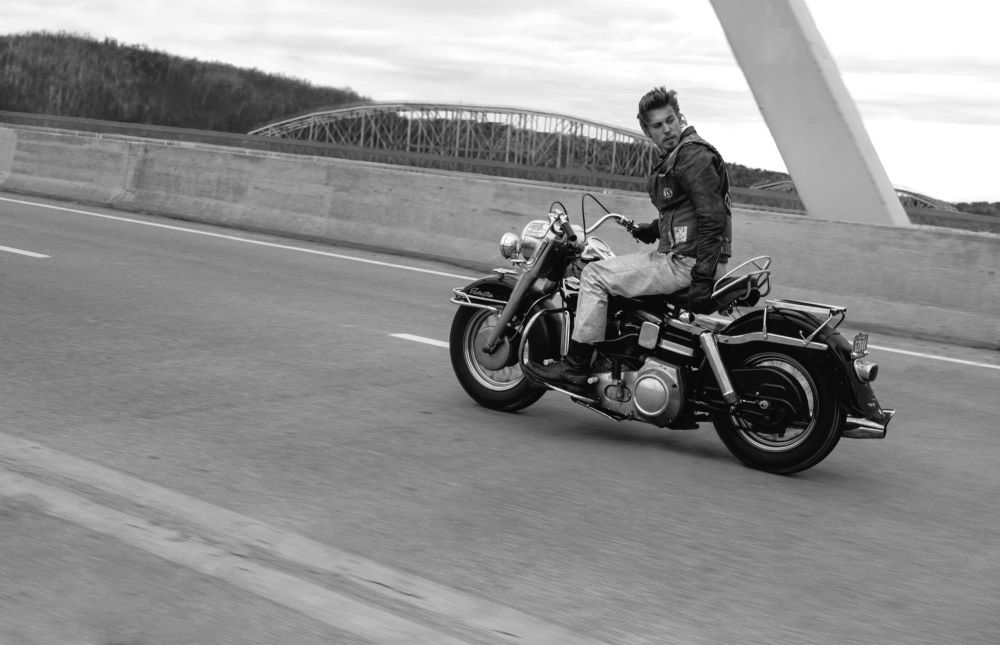
AC: What’s interesting is that you’re dealing with something very different to the popular image of the 1%ers, the Hells Angels. Sonny Barger really set what people think of when it comes to bikers.
JN: And Hunter Thompson, too.
AC: Yeah, he’s dealing with something different, the California guys.
JN: Yeah, West Coast bikers were, I’d probably say, five years advanced. In 1965 you’re still finding the Midwest biker clubs as still clubs.
AC: And these guys are just blue-collar gearheads.
JN: One hundred percent.
AC: You never see that iteration.
JN: And those are the guys I’m interested in. The biker culture that you see, I don’t know if that’s real. I don’t know if any of it’s real.
AC: But this feels closer because the people feel real.
JN: That’s what I got out of those interviews. You look at the photographs, and they’re very romantic, but then you read those interviews and it adds reality to it. It also adds how they operate, how their brains work. That’s what fascinates – how working-class people think and operate. It was always amazing – some of it’s in the book, and some of it’s in the outtakes – and you listen to these guys and they would just bitch and rag about, "Ah, that guy’s square," and "That guy’s got a mortgage," and "Fuck that, I’m never living that way," but then they would kinda talk like they had their feelings hurt that more people didn’t like them. The fuck? You can’t have it both ways. So what that really told me is that these guys were struggling with where they belong, and that’s all of us. That’s how it all goes, and it’s not shocking to me that you start talking to people and they’re operating on the same insecurities and pride and anger and emotions that everyone else is.
That’s what’s in those interviews in Danny’s book, and it’s this thing that reveals itself. It starts off very romantic, and then you realize it’s not. Part of that is that it was always there, and part of that is that it starts to metastasize into that.
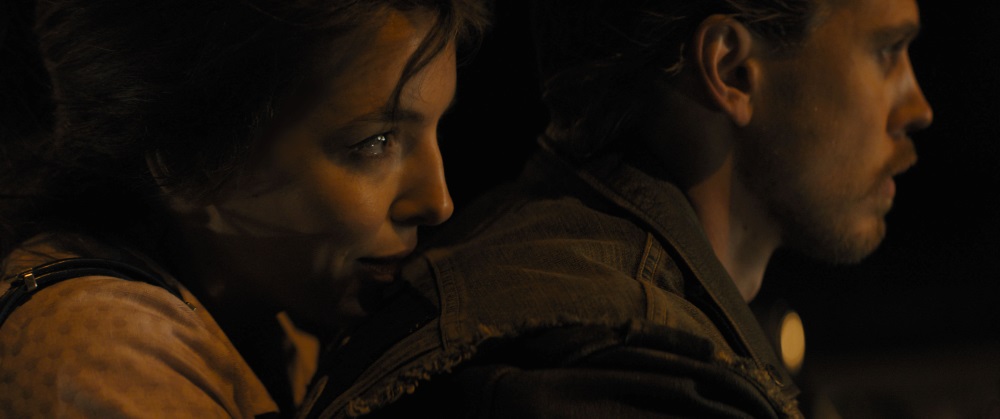
AC: Let’s talk about the changes you made for the script, like switching the name of the club from the Outlaws to the Vandals.
JN: That was a very conscious choice early on, and part of that was that I didn’t want to tell the Outlaws’ story. Partly because I didn’t want to offend them – I didn't want to use their patch, because I know how serious that is for them – so part of it was just self-preservation. But the other part was the freedom that gave me to fictionalize it, because this film is not a documentary. It’s not intended to be used as that kind of material. It’s a romance. It’s an affected look at this world, and to call it anything else would be a lie.
I would argue Danny’s photographs are affected. They’re romantic, but then you read those interviews and they’re not. They’re pretty unvarnished. There’s some stuff in there that’s pretty hard to read, and I liked that complexity. So by stepping away from the Outlaws, fictionalizing the club, it allowed me to go, "OK, I’m going to create an amalgam of these two characters; I’m going to take some dialogue from over here and put it over here; I’m going to take what was really just one interview with Kathy and break it up over three interviews and traverse this decade." All these things that I would never have done in Loving because that was a completely different task. I just wanted to create a movie that feels like I felt when I looked at Danny’s books, and so in order to do that I need to be allowed the freedom to romanticize that. I’ll take the pros and cons that come with that. I’ll take responsibility.
AC: It’s similar to how Sean Durkin had to approach the Von Erichs for The Iron Claw, changing it from six brothers to five because the tragedy felt insane at that point.
JN: My good friend John Spong wrote that article for Texas Monthly, and I remember when we first met – must have been 15 years ago – he was giving it to me, going, "Man, you’ve got to read this. This could be a movie." And every time I read it, I was just like, "John, it’s too sad. Who doesn’t want to make a 1980s regional wrasslin’ movie? But shit, man." I just couldn’t wrap my head around it.
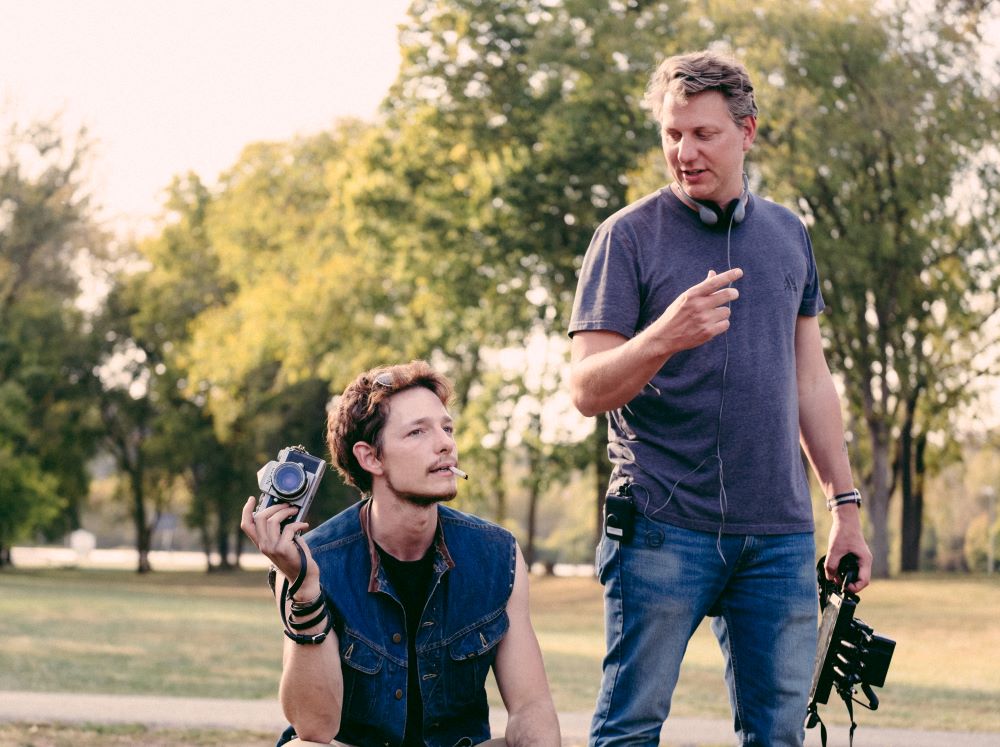
AC: You mentioned the most interesting choice, and that’s Kathy, and building it around her interviews. That’s the lightning strike here, because if it was any of the guys …
JN: It would be boring. And it would be bullshit. As she says, "Ah, these guys. Candy asses. They’re all candy asses." It would be way too heavy, not to mention affected. Just think about the aesthetic choice. It just feels … uch.
AC: And the obvious choice would be Danny as the outsider, but it’s not his life.JN: The real Danny will even tell you, they were subjects. We were lucky to have Mike Faist play that part. There was a scene – and it was the only scene I cut out of the film – and it was just Mike Faist’s character, and it was a scene in his darkroom, which was Danny’s bathroom, and he’s with a girl he was in college with. She was definitely not part of this world, and she’s saying, "I don’t know how you can hang out with these people," and he’s kind of reasoning it out. He gives his take on it, which is both "No, they are looking for something," but also, "Yeah, they are also morons." Mike early on says, "You’re going to cut this scene." I was like, "I bet you a thousand dollars we don’t cut this scene," and I owe Mike Faist a thousand dollars because as soon as we get to it in the edit I was just like, "It’s a point of view I don’t need," whereas in the script stage I have to have it or else the audience won’t understand my point of view. But then it’s, "No one gives a shit about your point of view. We care about Kathy’s point of view."
AC: When did you realize it had to be Kathy?
JN: You know, I always knew she would be a huge part of it because she’s a huge part of the book, and when you talk to Danny, he was most fascinated with Kathy – and Cal (Boyd Holbrook), but Cal was because they would smoke weed together. So he was close to Cal, and Cal’s stories are great, but the thing I loved about Kathy was that she seemed introspective. She seemed like she was really trying to figure out why she was there and had enough intelligence and humility and everything else to even ask the question. I shouldn’t take anything away from Danny, but I don’t think it was just Danny asking questions. You can ask questions to elicit that, but if you listen to this flow of consciousness that comes out of her mouth that’s like, "I don’t know, this happened and this happened and this happened. I used to be respectable," and you get this woman who’s grappling with this thing that’s at the center of motorcycle culture, which is that it’s beautiful and alluring and it’s 100% dangerous. So why are we attracted to it?
The Bikeriders will be released in cinemas June 21. Read Matthew Monagle’s 4-star review.
Jeff Nichols will also be at First Light Books, 4300 Speedway at 7pm on June 24 for a conversation with photographer Bryan Schutmaat about their new book VANDALS: The Photography of the Motion Picture The Bikeriders. Reserve a seat and a copy of the book at firstlightaustin.com.
A note to readers: Bold and uncensored, The Austin Chronicle has been Austin’s independent news source for over 40 years, expressing the community’s political and environmental concerns and supporting its active cultural scene. Now more than ever, we need your support to continue supplying Austin with independent, free press. If real news is important to you, please consider making a donation of $5, $10 or whatever you can afford, to help keep our journalism on stands.





